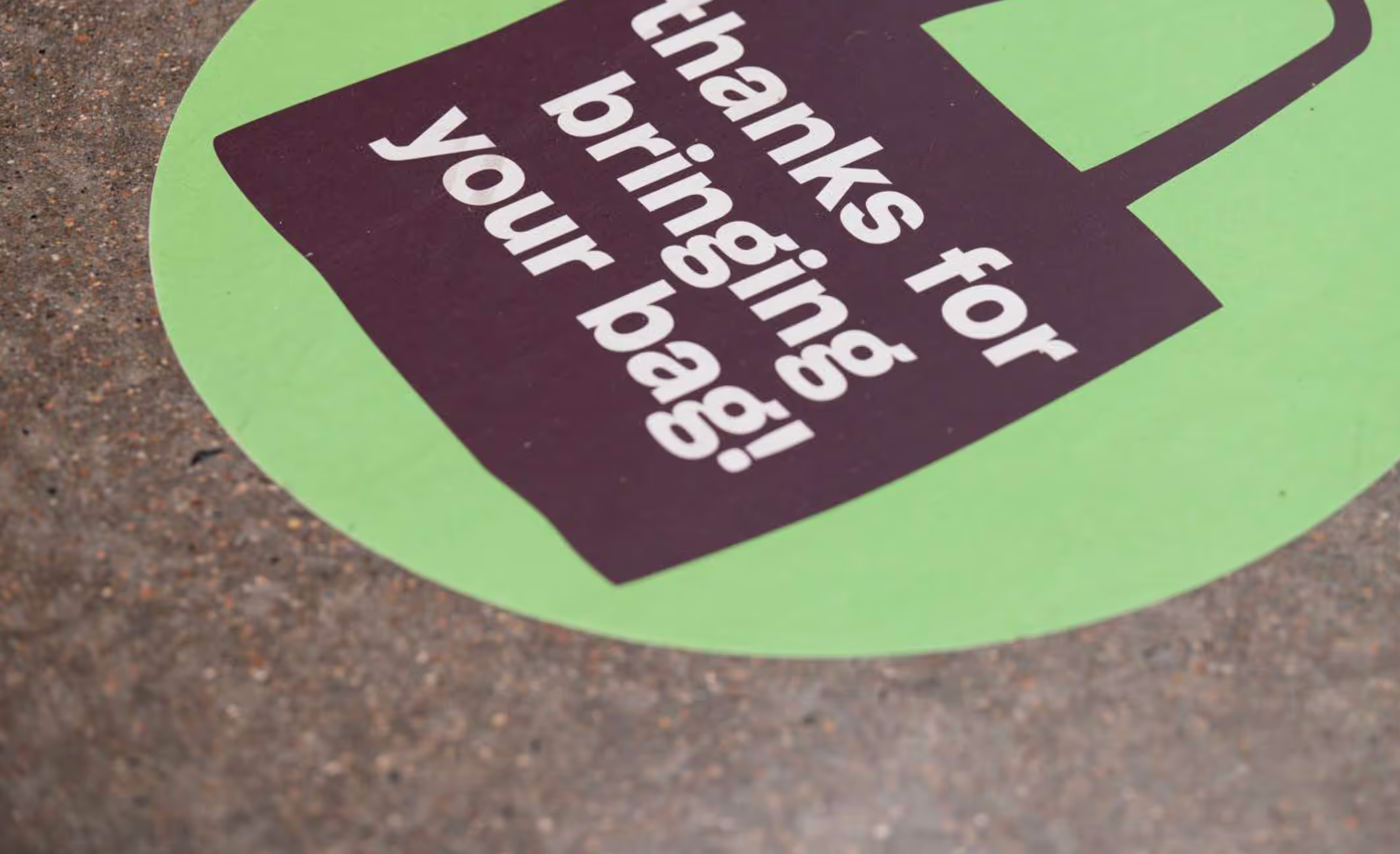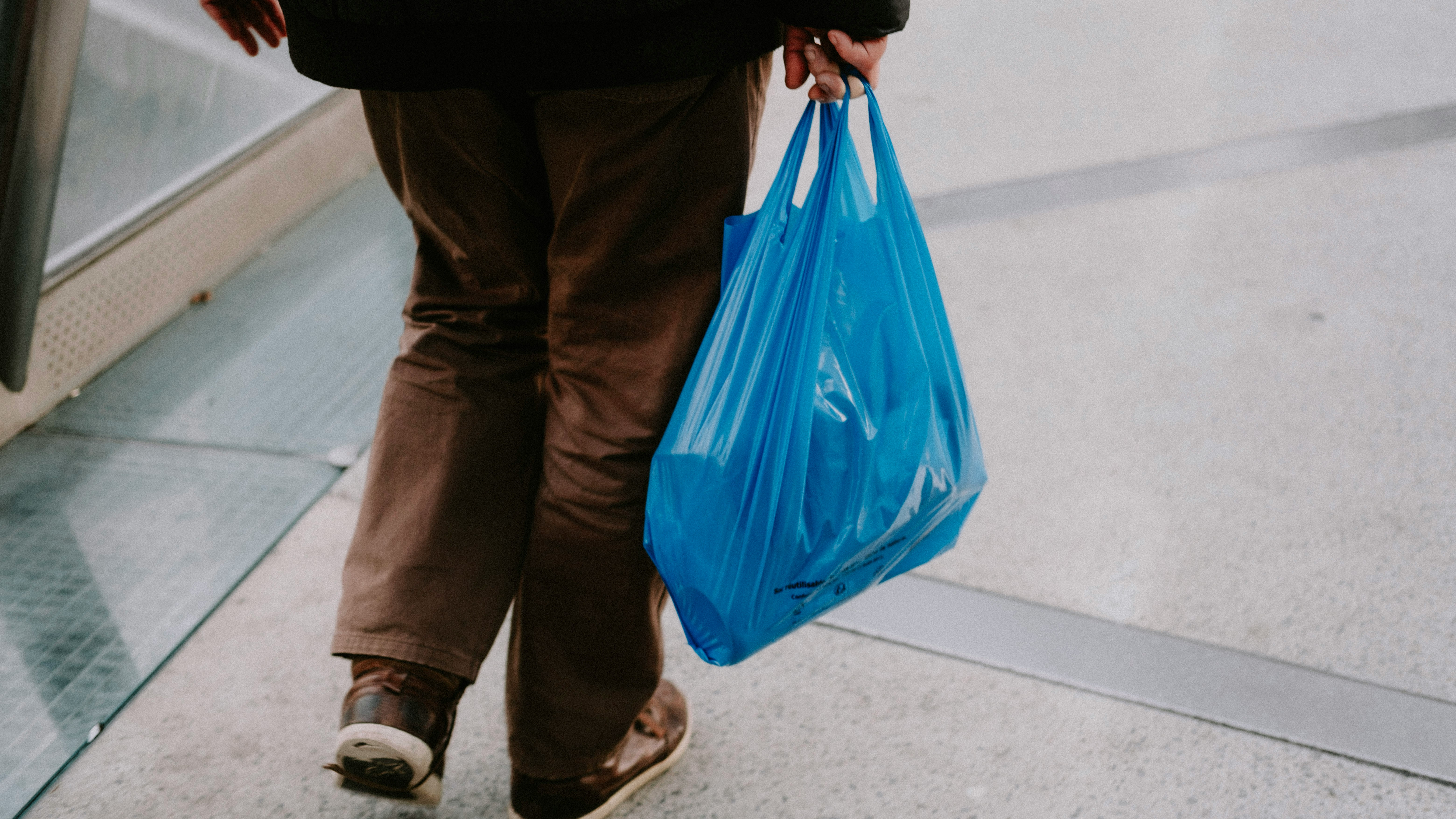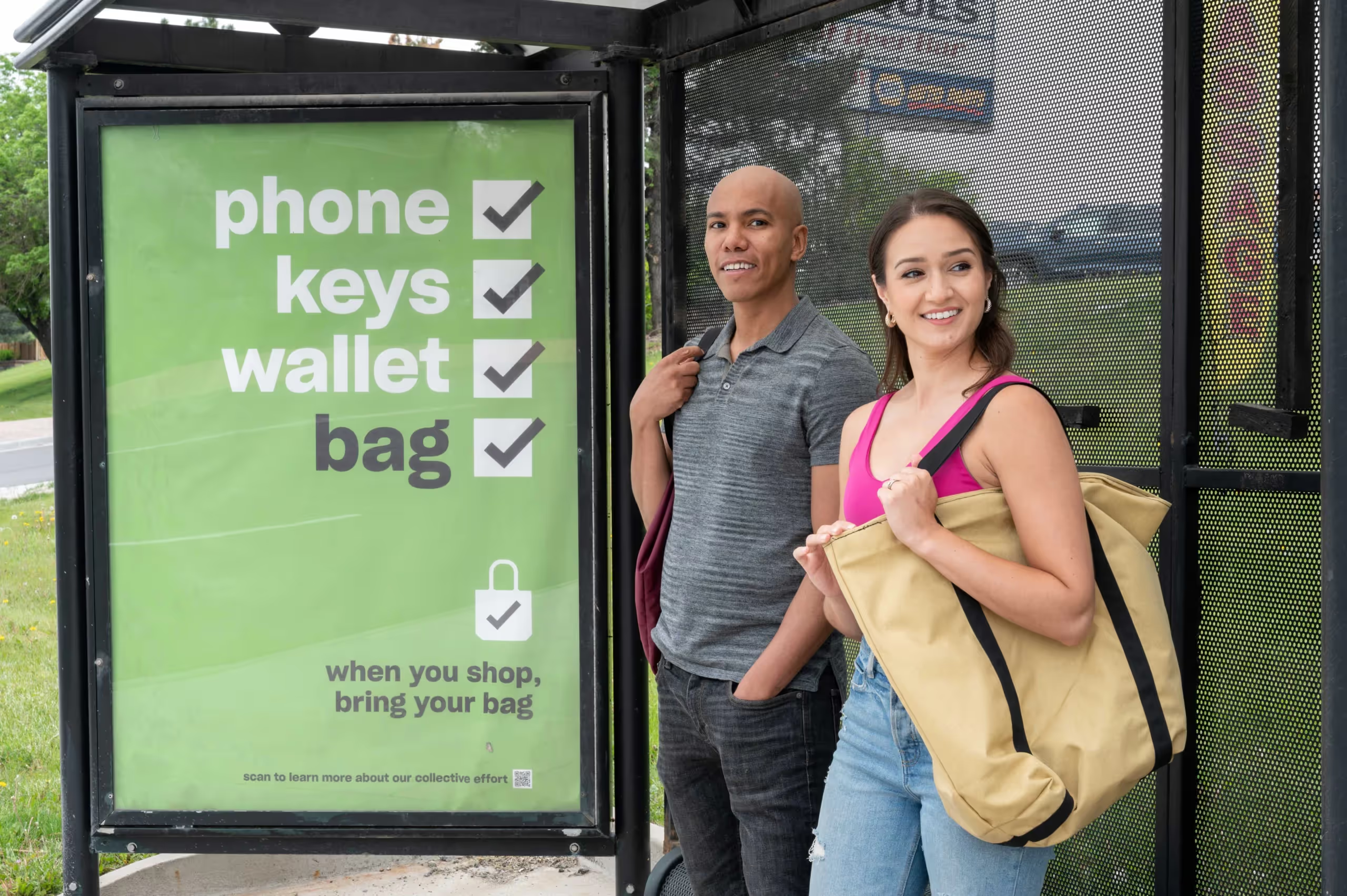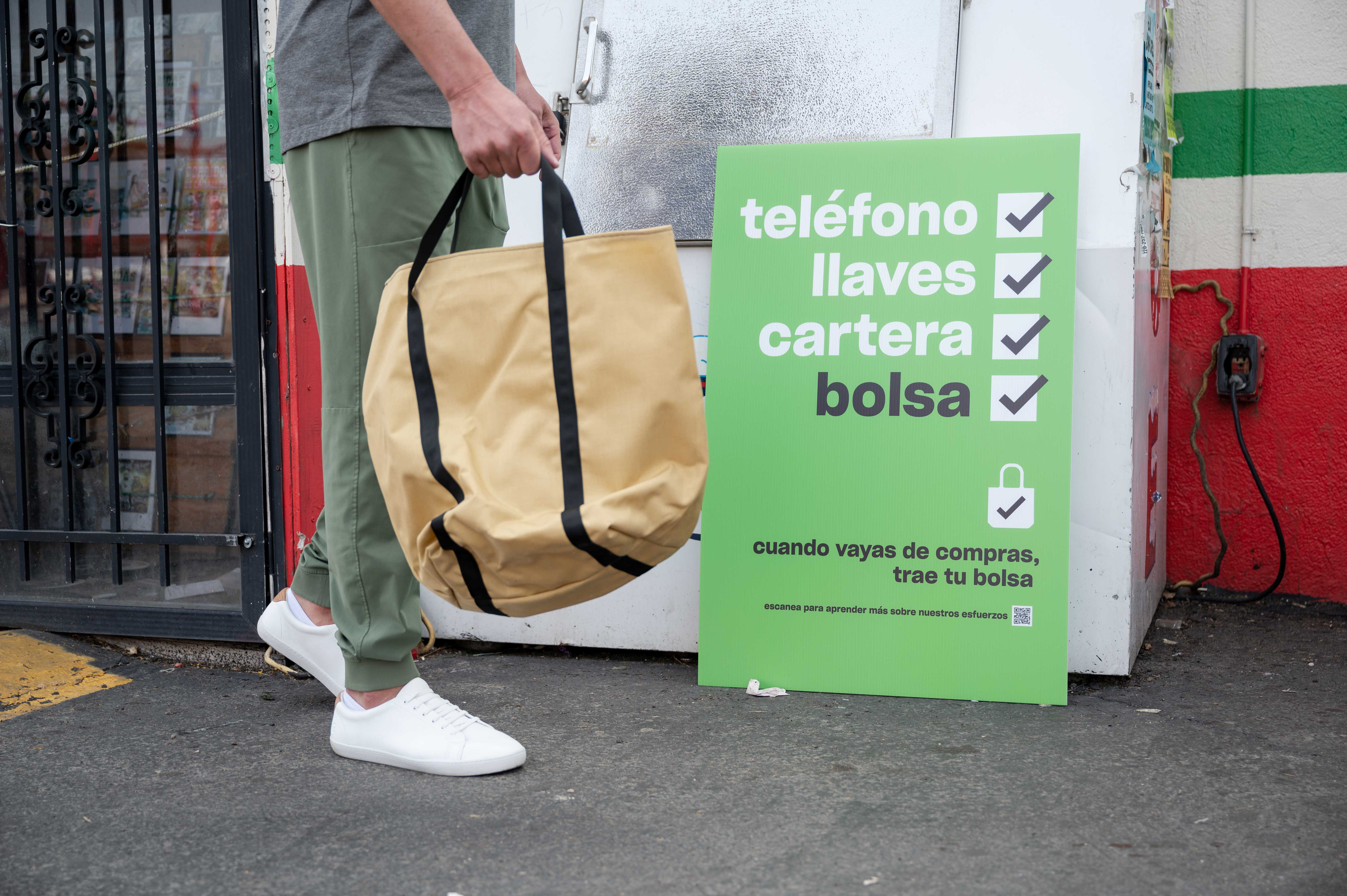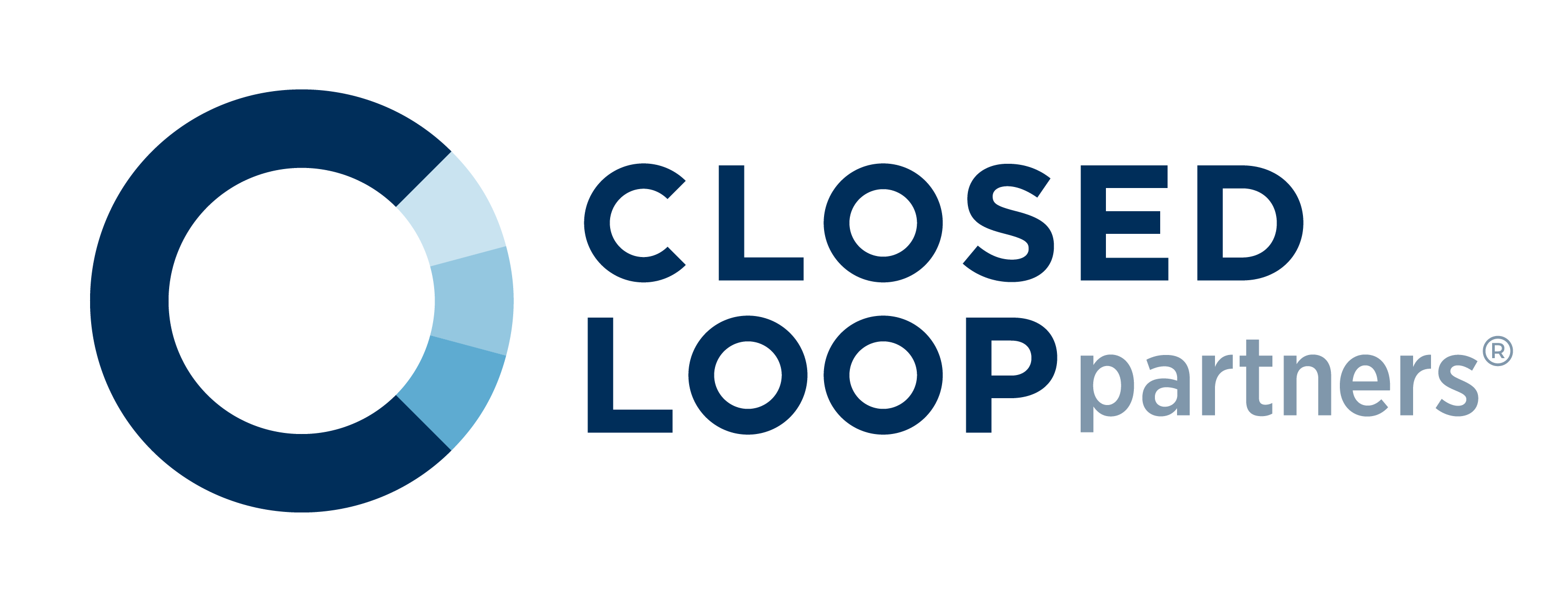After being introduced to the United States in 1979, single-use plastic bags rapidly emerged as the default way for shoppers to bring their purchases home. But as plastic bags became commonplace, their environmental cost became clear: vast amounts of plastic waste began to reach landfills, litter communities and clog waterways.
Policy solutions to address the waste are starting to have an impact — but many of these policies increase operating costs for businesses or impose financial penalties on consumers. Faced with the realization that single-use bags are bad for the planet, for businesses and for consumers, retailers are urgently seeking better ways to help shoppers bring their purchases home. With our partners in the Consortium to Reinvent the Retail Bag, we took on one of the most complex parts of this challenge: changing consumer behavior at the point of purchase.


.svg)
